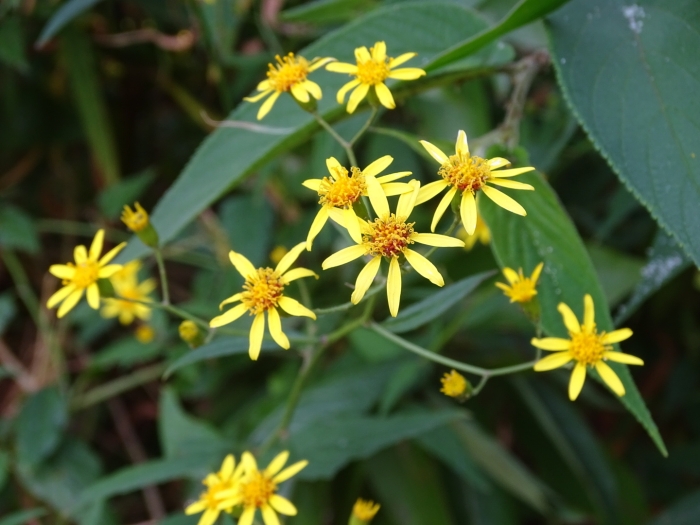Climbing Senecio
(Senecio scandens)
Climbing Senecio (Senecio scandens)
/
/

Toby Y
CC BY 4.0
Image By:
Toby Y
Recorded By:
Copyright:
CC BY 4.0
Copyright Notice:
Photo by: Toby Y | License Type: CC BY 4.0 | License URL: http://creativecommons.org/licenses/by/4.0/ | Rights Holder: Toby Y | Publisher: iNaturalist | Date Created: 2021-12-05T04:57:30Z |

























Estimated Native Range
Summary
Senecio scandens, commonly known as Climbing Senecio, is a perennial vine native to forest margins, scrub areas, and thickets in Southeast Asia and the Indian subcontinent. It is characterized by its rhizomatous rootstock and slender, woody stems that can reach lengths of 7-16 feet (2-5 meters). This species is particularly noted for its vigorous climbing habit, using other plants or structures for support.
Climbing Senecio is valued for its lush foliage and its ability to cover unsightly areas quickly, making it a popular choice for green walls, trellises, and arbors in tropical and subtropical gardens. It thrives in humid conditions with well-draining soil and prefers partial shade to full sun exposure. Regular watering is necessary, especially during dry periods. While it can be an attractive addition to the garden, Climbing Senecio requires careful management to prevent it from becoming overly aggressive. It is potentially invasive in some regions outside its native range, and gardeners should consult local regulations before planting.CC BY-SA 4.0
Climbing Senecio is valued for its lush foliage and its ability to cover unsightly areas quickly, making it a popular choice for green walls, trellises, and arbors in tropical and subtropical gardens. It thrives in humid conditions with well-draining soil and prefers partial shade to full sun exposure. Regular watering is necessary, especially during dry periods. While it can be an attractive addition to the garden, Climbing Senecio requires careful management to prevent it from becoming overly aggressive. It is potentially invasive in some regions outside its native range, and gardeners should consult local regulations before planting.CC BY-SA 4.0
Plant Description
- Plant Type: Vine
- Height: 2-3 feet
- Width: 1-2 feet
- Growth Rate: Moderate
- Flower Color: Yellow
- Flowering Season: Summer
- Leaf Retention: Evergreen, Semi-deciduous
Growth Requirements
- Sun: Part Shade
- Water: Medium
- Drainage: Medium
Common Uses
Border Plant, Low Maintenance
Natural Habitat
Native to forest margins, scrub areas, and thickets in Southeast Asia and the Indian subcontinent
Other Names
Common Names: German Ivy
Scientific Names: , Senecio scandens, Cacalia wightiana, Cacalia wightiana, Cineraria chinensis, Cineraria divaricata, Cineraria divaricata, Cineraria repanda, Senecio campylodes, Senecio chinensis
GBIF Accepted Name: